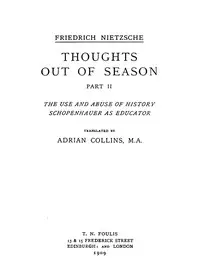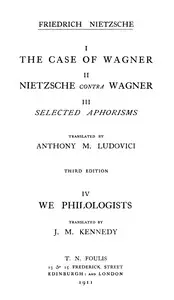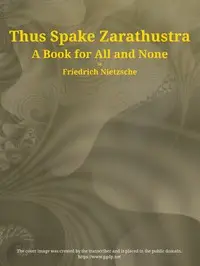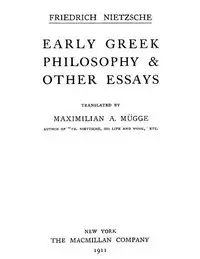"Thoughts out of Season, Part I" by Friedrich Wilhelm Nietzsche is a philosophical exploration of late 19th-century culture, where the author questions national pride after Germany's victory and challenges the idea that military success equates to cultural triumph, cautioning against shallow cultural attitudes that threaten genuine artistic and intellectual progress; figures like David Strauss and Richard Wagner serve as lenses through which Nietzsche examines art, culture, and humanity's direction, setting a tone against complacency in a flourishing but, to him, insipid society.
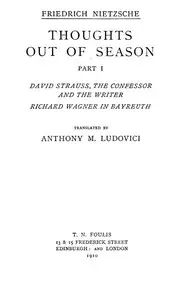
Thoughts out of Season, Part I David Strauss, the Confessor and the Writer - Richard Wagner in Bayreuth.
By Friedrich Wilhelm Nietzsche
Following a nation's glorious victory, a philosopher argues that true culture is not just cultivation, using controversial figures to make his point.
Summary
About the AuthorFriedrich Wilhelm Nietzsche was a German classical scholar, philosopher, and critic of culture, who became one of the most influential of all modern thinkers. He began his career as a classical philologist before turning to philosophy. He became the youngest person to hold the Chair of Classical Philology at the University of Basel in Switzerland in 1869, at the age of 24, but resigned in 1879 due to health problems that plagued him most of his life; he completed much of his core writing in the following decade. In 1889, at age 44, he suffered a collapse and afterward a complete loss of his mental faculties, with paralysis and probably vascular dementia. He lived his remaining years in the care of his mother until her death in 1897, and then with his sister Elisabeth Förster-Nietzsche. Nietzsche died in 1900, after experiencing pneumonia and multiple strokes.
Friedrich Wilhelm Nietzsche was a German classical scholar, philosopher, and critic of culture, who became one of the most influential of all modern thinkers. He began his career as a classical philologist before turning to philosophy. He became the youngest person to hold the Chair of Classical Philology at the University of Basel in Switzerland in 1869, at the age of 24, but resigned in 1879 due to health problems that plagued him most of his life; he completed much of his core writing in the following decade. In 1889, at age 44, he suffered a collapse and afterward a complete loss of his mental faculties, with paralysis and probably vascular dementia. He lived his remaining years in the care of his mother until her death in 1897, and then with his sister Elisabeth Förster-Nietzsche. Nietzsche died in 1900, after experiencing pneumonia and multiple strokes.

